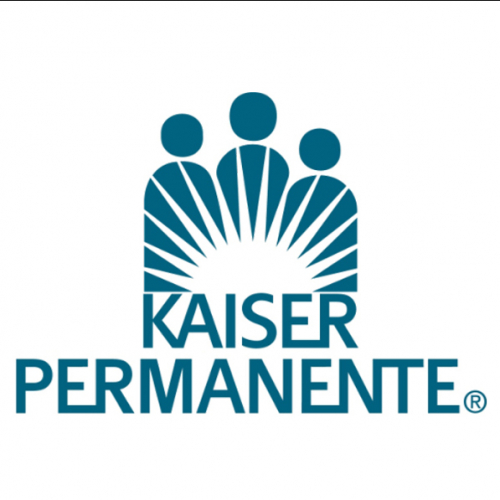Bay Area
Kaiser Supports Small Businesses Recovering from COVID-19 Pandemic
Inner City Capital Connections provides free training, coaching and connection to capital for businesses looking to rebuild and rehire

Many small business owners in underserved communities are still struggling from the economic fallout due to the COVID-19 pandemic and need additional support to rebuild and recover.
Kaiser Permanente Northern California is partnering with the Initiative for a Competitive Inner City (ICIC) on a virtual program that offers small businesses a tuition-free, 40–hour mini-MBA program that combines executive education, webinars, coaching and connection to capital.
The Inner City Capital Connections program (ICCC) helps small businesses in underserved communities build the capacity they need to grow and create new jobs. Kaiser Permanente has partnered with ICIC since 2016 providing support to more than 1,700 businesses and creating more than 2,000 jobs. Of the 1,786 businesses that have participated in the program, 66% wereminority-owned and 58% were owned by women.
Businesses selected to participate will complete a training and coaching program. Kaiser Permanente Northern California is sponsoring the ICCC program to support small businesses, spur job growth and improve the health of the communities we serve.
A 2020 Health Crisis survey conducted by ICIC found 71% of business owners who responded experienced revenue loss, 33% laid off employees and 90% received some type of government financial assistance due to the COVID-19 pandemic.
“Kaiser Permanente recognizes how difficult the COVID-19 pandemic has been for many of the small businesses in our communities that struggled over the past year,” said Carrie OwenPlietz, FACHE, president of Kaiser Permanente’s Northern California region. “Economic opportunity is a key driver of health. Our communities must be economically vibrant to improve individuals’ health outcomes and reduce health disparities for all residents, including our members.”
Nominations are open for the first cohort of the virtual program, which will be held in July. The program is open to businesses throughout Northern California who meet program qualifications and are selected following an application process. The deadline to apply or nominate a small business is May 28, 2021.
The ICCC program includes an interactive virtual, two-day seminar series that focuses on business recovery strategies and information on capital and technical assistance resources.
The program also includes webinars, one-on-one coaching with distinguished business leaders,and culminates with a conference for program graduates. Participants leave the program with the tools they need to help their businesses survive, recover and grow.
In 2020, ICCC served 1,220 businesses in 17 markets with 74% identifying as minority-owned business owners and 61% as women-owned businesses.
“I would not be where I am today from a strategy and a revenue perspective if it weren’t for the fact that I was exposed to these seminars and webinars,” said Julio Ortiz, business partner for Gaspachos in Sacramento, which participated in the ICCC program in 2019. “Kaiser and ICCC are doing amazing work out in the community.”
About Initiative for a Competitive Inner City (ICIC)
ICIC is a national, nonprofit research and advisory organization founded in 1994. ICIC’s mission is to drive economic prosperity in America’s inner cities through private sector investment to create jobs, income and wealth for residents. www.icic.org
Activism
Oakland Post: Week of July 24 – 30, 2024
The printed Weekly Edition of the Oakland Post: Week of July 24 – 30, 2024

To enlarge your view of this issue, use the slider, magnifying glass icon or full page icon in the lower right corner of the browser window. ![]()
Activism
Oakland Post: Week of July 17 -23, 2024
The printed Weekly Edition of the Oakland Post: Week of July 17 -23, 2024

To enlarge your view of this issue, use the slider, magnifying glass icon or full page icon in the lower right corner of the browser window. ![]()
Bay Area
Op-Ed Senate Bill 966 Threatens Health Equity in East Bay
My East Bay community is struggling to get by. A proposed State Senate bill would set us back even further. Serving the East Bay community has been my life’s work and my greatest joy. After leaving the Bay Area to complete my seminary, I returned home to found The Community Church in Oakland. From the outset of my time as the church’s pastor, I have been guided by the belief that my service must extend beyond the pulpit, because the health and economic needs of my community are so great. Our church has organized free food banks, COVID-19 testing clinics, and a housing and re-entry program for those suffering from addiction.

By Rev. Dr. Lawrence E. VanHook
Special to the Post
My East Bay community is struggling to get by. A proposed State Senate bill would set us back even further.
Serving the East Bay community has been my life’s work and my greatest joy. After leaving the Bay Area to complete my seminary, I returned home to found The Community Church in Oakland.
From the outset of my time as the church’s pastor, I have been guided by the belief that my service must extend beyond the pulpit, because the health and economic needs of my community are so great. Our church has organized free food banks, COVID-19 testing clinics, and a housing and re-entry program for those suffering from addiction.
Through my service, I have seen the challenges that our community members are facing. Oakland, my hometown, has the third-highest rate of violent crime in the state. The local economy is strained. Oakland-based businesses are leaving our community because they’re struggling to get ahead.
Both East and West Oakland has disproportionately high rates of respiratory illness due to heavy air pollution. While our local efforts have brought some aid to those in need, we are also counting on our state elected officials to help us address the systemic health disparities afflicting the community.
Chief among the health concerns of community members is having reliable and affordable access to prescription drugs. Equitable access to medications gives us the peace of mind that we can keep ourselves and our families healthy and safe. Our community should not have to choose between paying rent or purchasing prescriptions.
Unfortunately, rather than taking action to combat soaring prescription drug prices, some California lawmakers are pushing legislation that could raise patient costs at the pharmacy counter.
The Legislature is currently considering SB 966, a bill backed by special interests that would undercut the few tools we have to keep prescription drug costs contained, letting big drug companies increase their prices, profiting on the backs of working families – some of whom already live paycheck to paycheck.
SB 966 would target the fundamental programs through which small businesses, unions, and government health programs are able to offer their employees and members quality and affordable healthcare. Millions of Californians rely on these plans to obtain essential medications at the lowest-possible cost.
The bill would make it illegal for employers and unions to incentivize the administrators of their prescription drug plans to negotiate for the lowest possible cost for prescriptions. Right now, small businesses and unions can choose to pay these administrators more for taking on big drug companies and securing discounts – a choice that will be outlawed under this bill.
As a result, employers will have no leverage to stop big drug companies from setting sky-high prices, disproportionately impacting working families.
As these health costs quickly add up, employers will have little choice but to pass the increases down to their employees. That means California patients will see higher healthcare costs and co-pays.
From my perspective, most concerning is that the bill would exacerbate the health disparities impacting my community and other underserved populations. If SB 966 becomes law, the most vulnerable may be forced to skip prescription doses, stop filling their prescriptions, and avoid essential care.
By rejecting this cash grab by big drug companies, our state elected officials can send a clear message that they stand with the community, patients, and working families.
We cannot afford SB 966.
Rev. Dr. VanHook is the founder and pastor of The Community Church in Oakland and the founder of The Charis House, a re-entry facility for men recovering from alcohol and drug abuse.
-

 Arts and Culture3 weeks ago
Arts and Culture3 weeks agoRooted in Tradition: The Intricate History of Black Hair Braiding
-

 Bay Area4 weeks ago
Bay Area4 weeks ago“I Will Not Be Bullied,” Says Oakland Mayor Sheng Thao
-

 Bay Area2 weeks ago
Bay Area2 weeks agoPG&E Increases Rates While Bay Area Households Are Struggling to Stay Afloat
-

 Business3 weeks ago
Business3 weeks agoGov Newsom: Raising Fast Food Minimum Wage to $20 Pays Off as Jobs Multiply in Industry
-

 Activism4 weeks ago
Activism4 weeks agoOpponents of Mayor Sheng Thao Are Calling on Her to Resign Following FBI Raid
-

 Community1 week ago
Community1 week agoHundreds Come to Jehovah’s Witnesses’ Assembly Hall for Three-Day Program of ‘Good News’ in Fremont
-

 Bay Area2 weeks ago
Bay Area2 weeks agoJuneteenth Mass Shooting Suspect Charge with Multiple Counts of Felony Assault by Alameda County DA Pamela Price
-

 Activism4 weeks ago
Activism4 weeks agoOakland Coliseum Sale to AASEG: A Model for Community Development and Inclusion























































